"No Man’s Sky Transformed: Massive Worlds Update Part II Unveiled"
- By Finn
- May 18,2025
No Man’s Sky has been a topic of discussion across numerous articles on this site, and it's no exaggeration to say it's one of the most groundbreaking video games in the industry. This project not only showcases the developers' unwavering dedication and effort but also unveils the marvels of universe and planet generation technology, setting a new standard for what a true sandbox game can be.
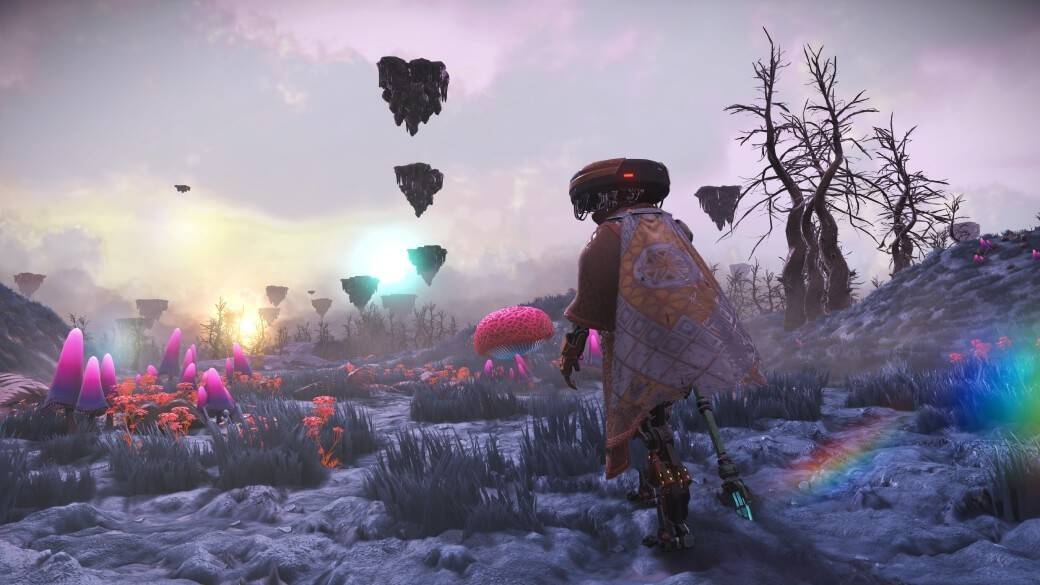 Image: nomanssky.com
Image: nomanssky.com
Recently, a pivotal moment in the game's evolution occurred with the release of the second part of the massive Worlds update, which has significantly expanded and enhanced the No Man’s Sky universe, making it more diverse and visually stunning than ever before.
Table of Content ---
- Mysterious Depths
- New Planets
- Gas Giants
- Relic Worlds
- Other World Improvements
- Updated Lighting
- Construction and Progress
0 0 Comment on this Mysterious Depths
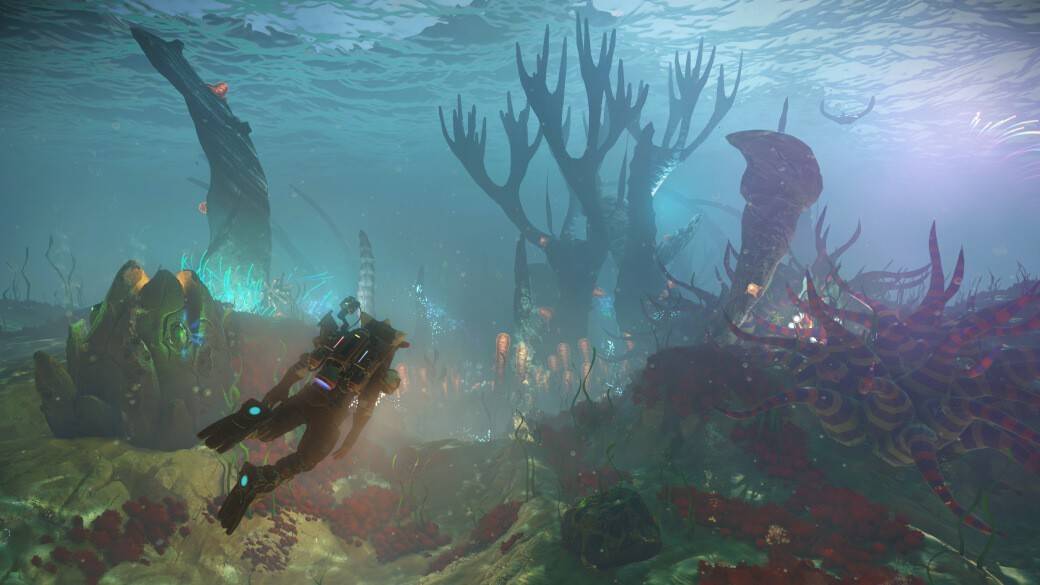 Image: nomanssky.com
Image: nomanssky.com
The core focus of Worlds Part II was to revolutionize underwater exploration. Previously, the oceans and lakes in No Man’s Sky were somewhat overlooked by players due to their lack of excitement. While there were resources and the possibility of building bases underwater, the allure was minimal. However, the latest update has transformed these aquatic environments into thrilling frontiers.
The oceans are now deeper, plunging players into realms of eternal darkness and intense pressure. Surviving these depths is a challenge, but the game now offers specialized suit modules to aid in this endeavor, complete with a new pressure level indicator during dives.
In these dark depths, where sunlight never reaches, the flora and fauna have evolved to emit their own light, creating a mesmerizing bioluminescent spectacle. Corals and certain creatures glow, illuminating the underwater world.
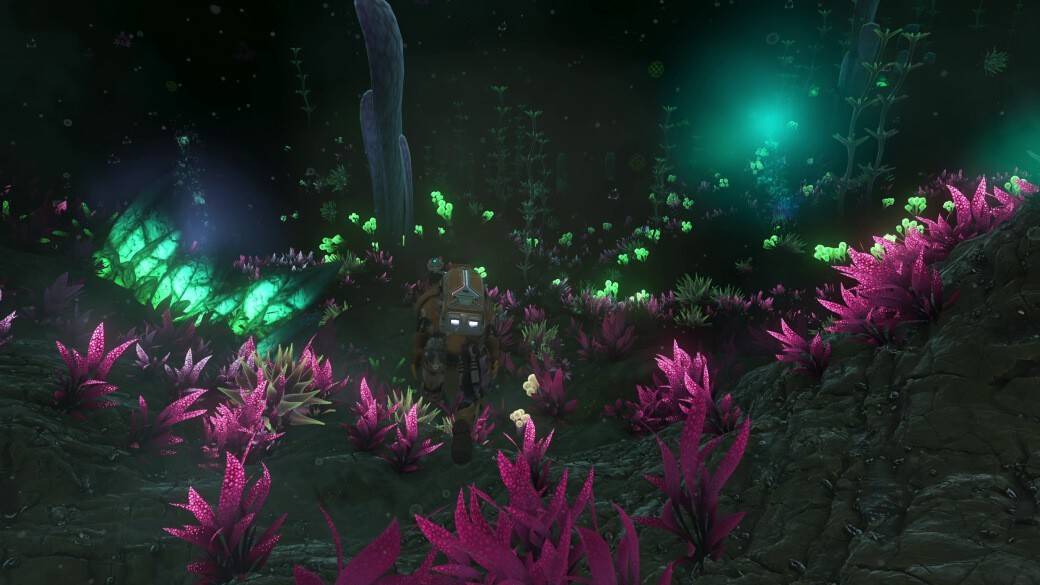 Image: nomanssky.com
Image: nomanssky.com
The lighting in shallower waters has also been revamped, resulting in breathtaking visuals.
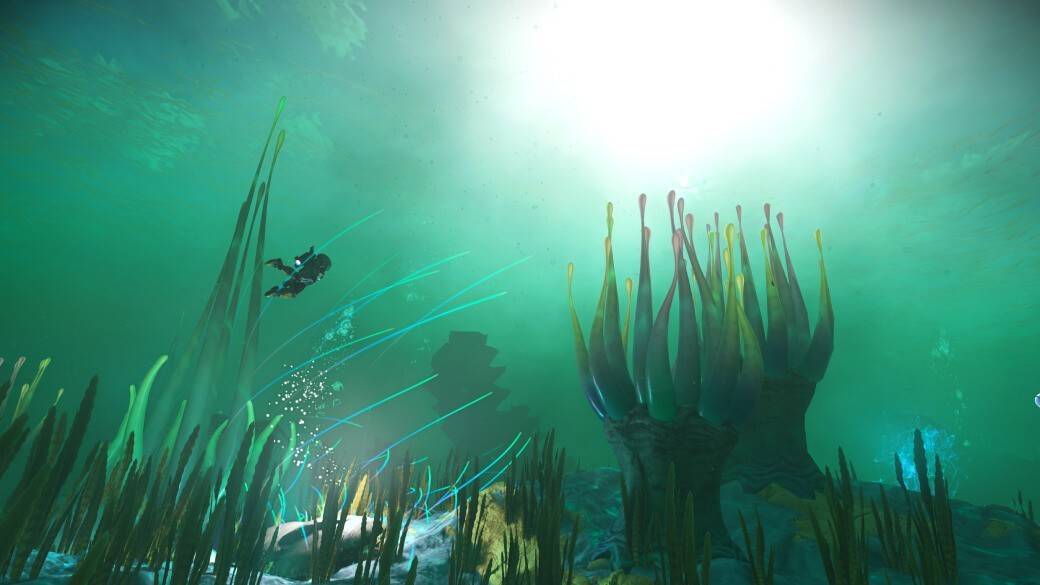 Image: nomanssky.com
Image: nomanssky.com
New species of fauna have been introduced, enriching the underwater ecosystems. From new types of fish and seahorses in moderate depths to the awe-inspiring gigantic squids in the deeper zones, the variety and scale of underwater life are truly impressive.
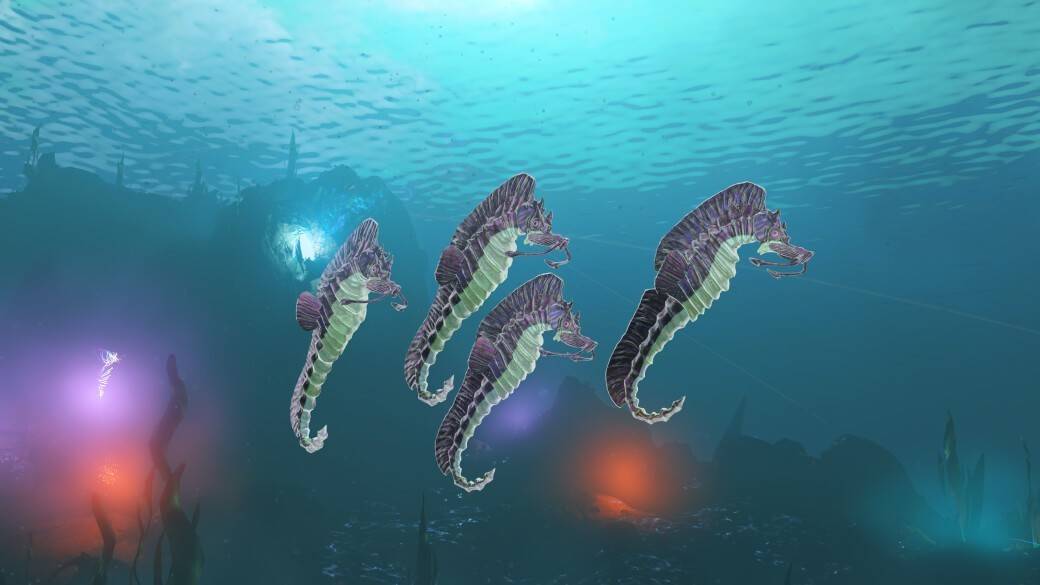 Image: nomanssky.com
Image: nomanssky.com
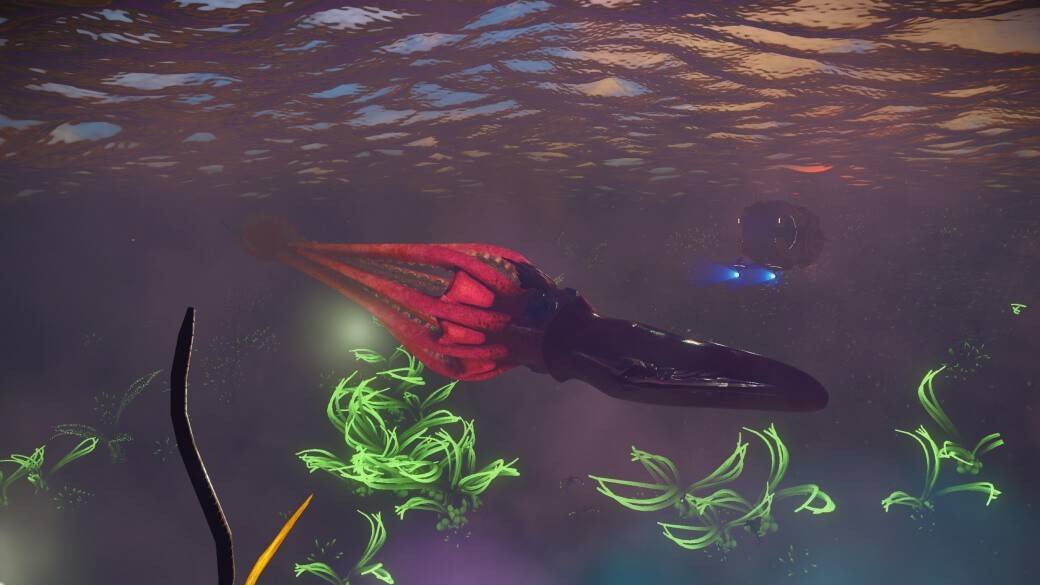 Image: nomanssky.com
Image: nomanssky.com
With these enhancements, building underwater bases has become a more compelling aspect of the game, offering an experience reminiscent of Subnautica.
New Planets
The update also introduces hundreds of new star systems, including a novel type: purple star systems. These systems host new oceanic planets and other celestial bodies like gas giants.
Gas Giants
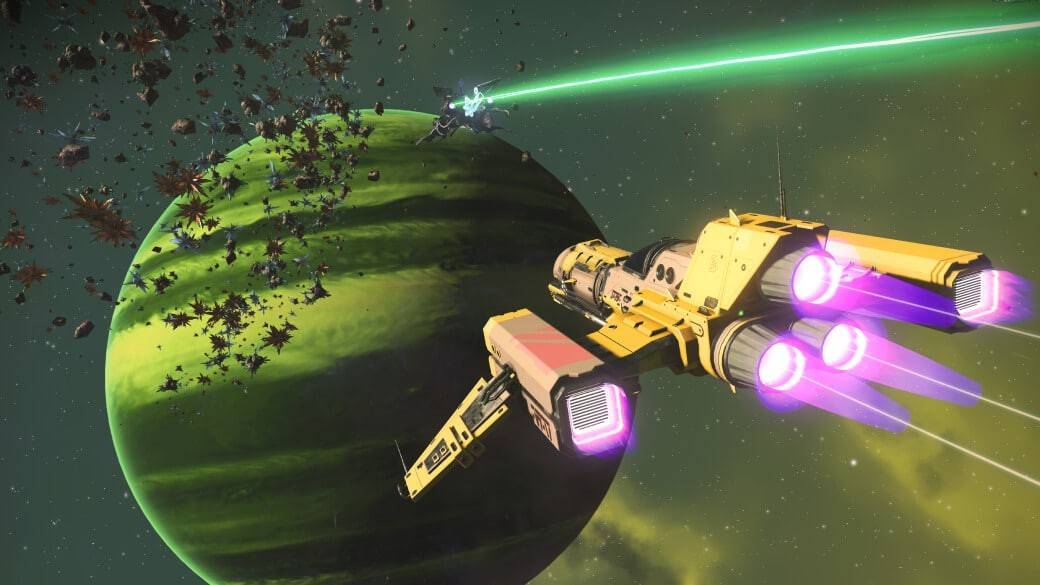 Image: nomanssky.com
Image: nomanssky.com
Accessing these systems requires completing the storyline and acquiring a new type of engine. The journey is well worth it, as these systems contain some of the game's most valuable resources.
Like their real-world counterparts, gas giants in No Man’s Sky have a rocky core. While in reality, landing on one would be fatal due to extreme conditions, the game allows players to explore these cores, where they'll encounter constant storms, lightning, radiation, and high temperatures.
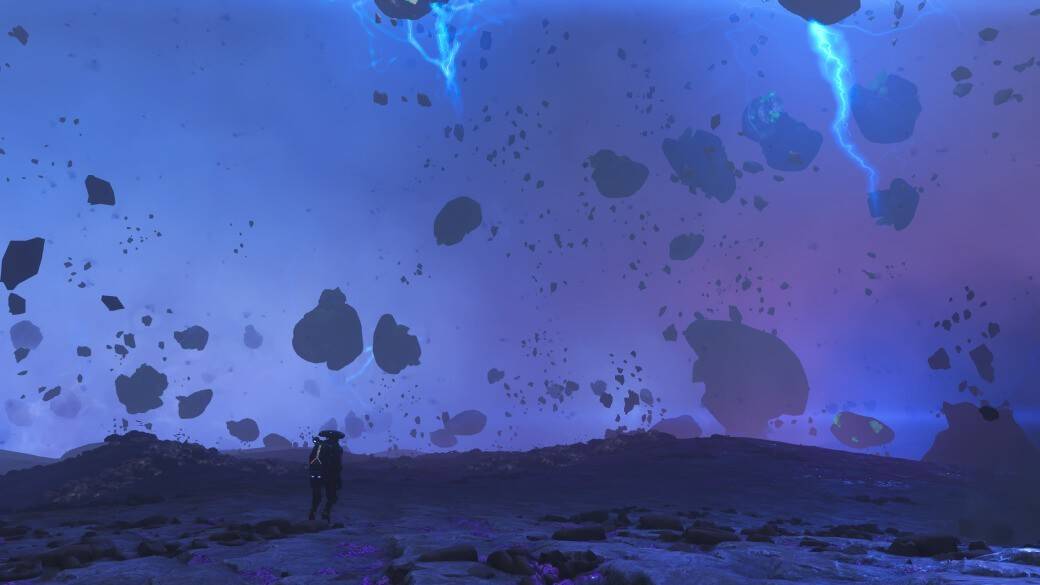 Image: nomanssky.com
Image: nomanssky.com
Relic Worlds
Previous updates introduced ruins of ancient civilizations, which were a rare but fascinating find. Worlds Part II expands on this concept by introducing entire planets covered in these ancient relics.
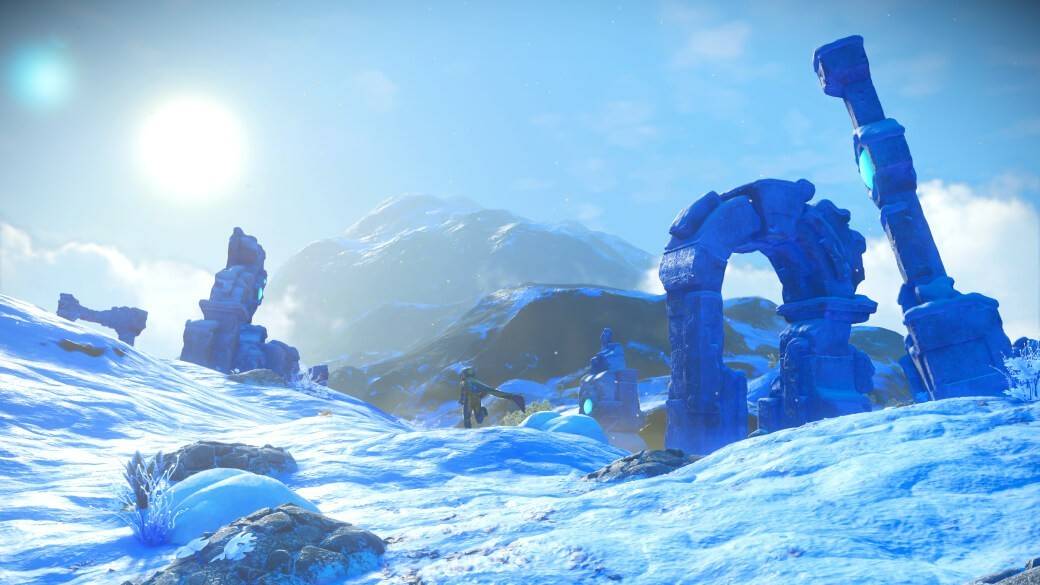 Image: nomanssky.com
Image: nomanssky.com
Players can now explore these relic worlds to uncover new artifacts and records of these lost civilizations.
Other World Improvements
The update brings significant changes to all planets, including a new landscape generation system that creates even more unique and varied environments.
For example, No Man’s Sky now features denser jungles, offering a richer and more immersive experience.
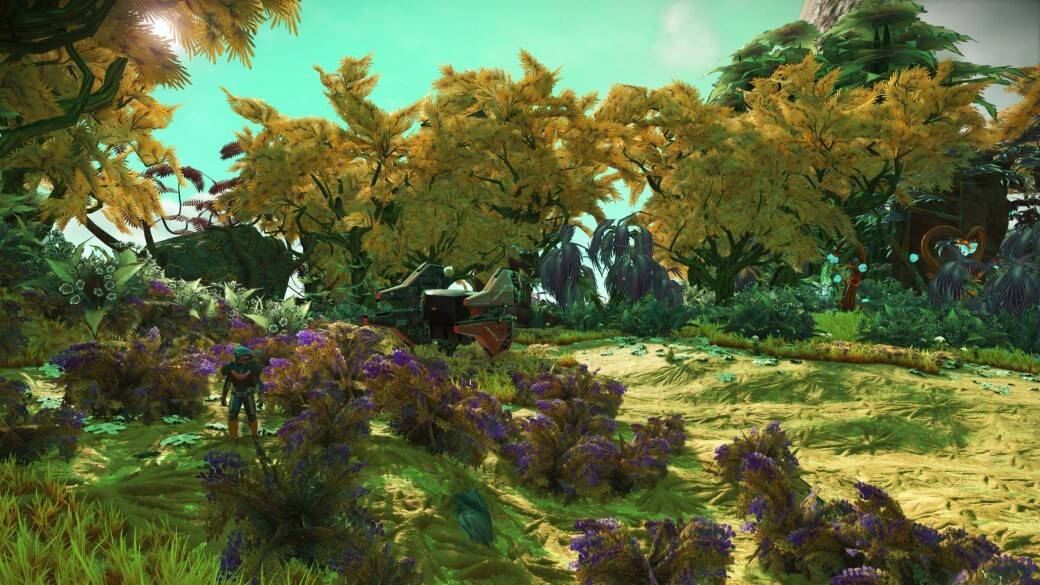 Image: nomanssky.com
Image: nomanssky.com
Planets heavily influenced by their stars have been introduced, characterized by scorching temperatures to which both flora and fauna have adapted.
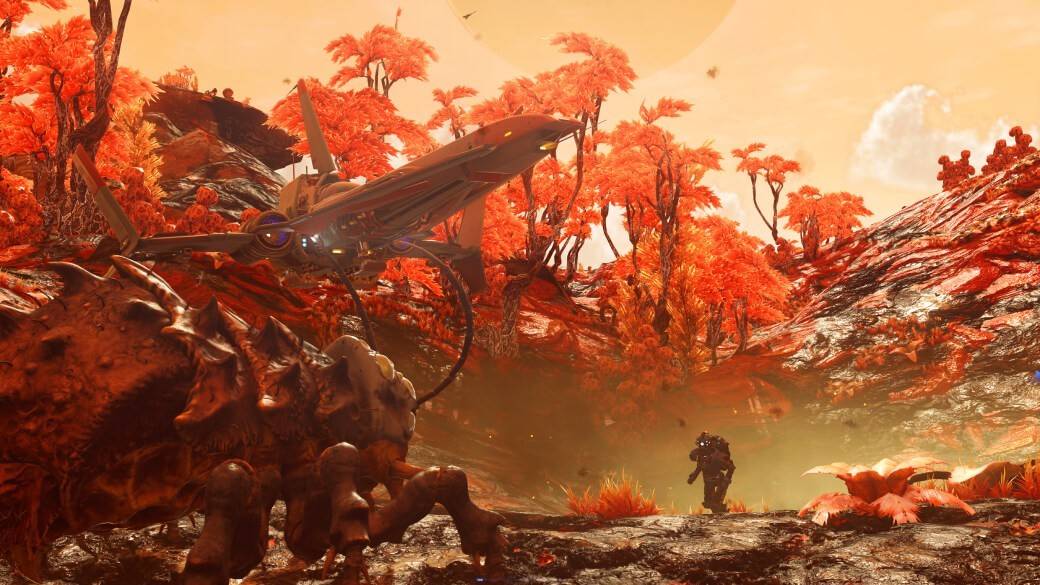 Image: nomanssky.com
Image: nomanssky.com
Icy planets have also seen significant updates, with colder atmospheres, revamped lighting, and new types of landscapes, plants, and creatures.
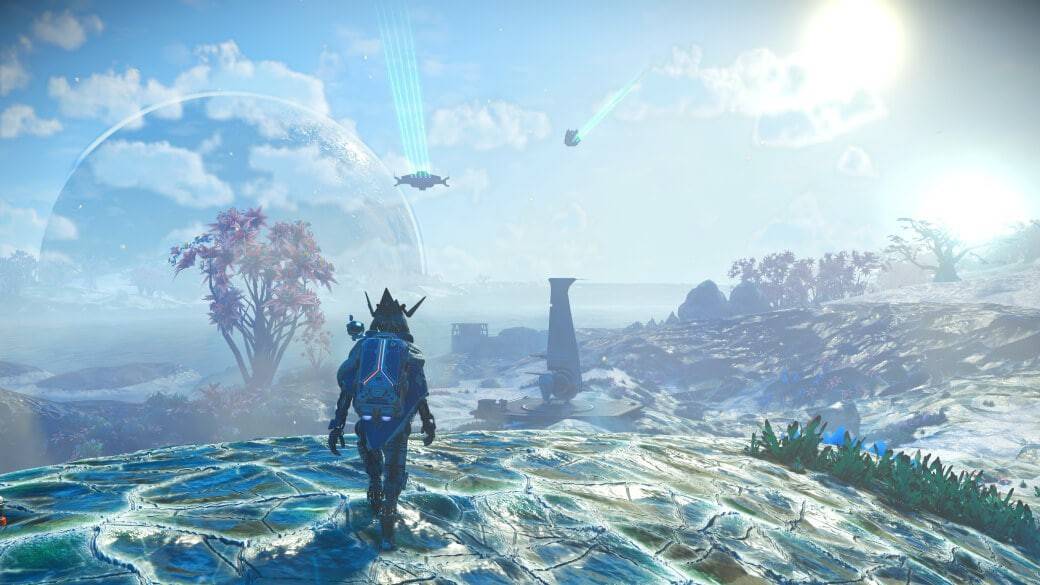 Image: nomanssky.com
Image: nomanssky.com
The update introduces extreme geological phenomena such as geothermal springs, poisonous anomalies, and geysers. Additionally, a new type of toxic world featuring mushroom spores has been added.
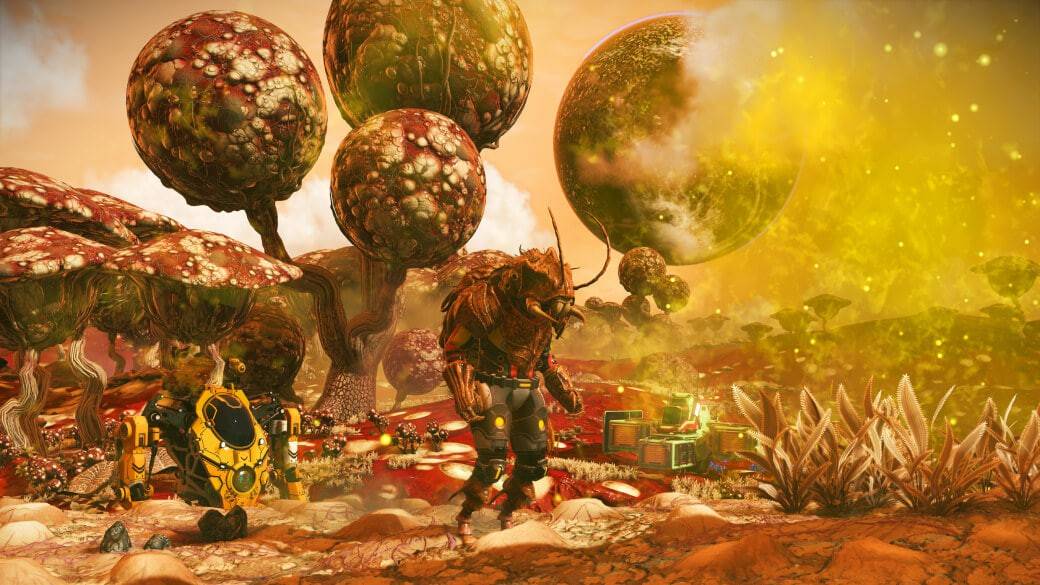 Image: nomanssky.com
Image: nomanssky.com
Updated Lighting
Lighting improvements extend beyond the underwater realms. The update enhances interior lighting in caves, buildings, and space stations, creating more atmospheric and immersive environments.
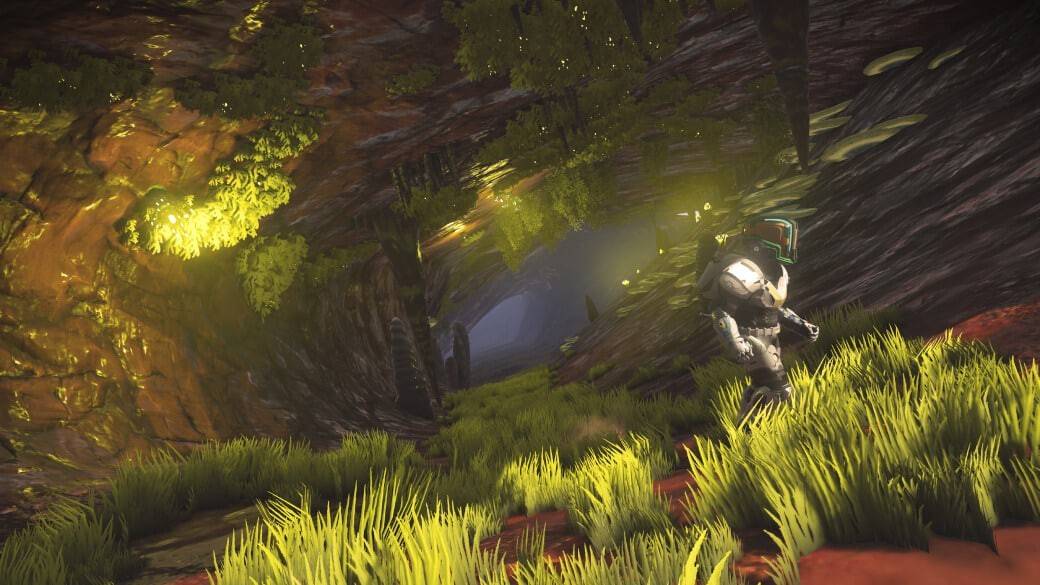 Image: nomanssky.com
Image: nomanssky.com
Alongside these visual enhancements, performance and loading speeds have been optimized. Transitions between orbit and planets are now seamless, and loading the Anomaly is smoother than ever.
Construction and Progress
The update also introduces new modules for upgrades and construction. For instance, the Colossus now features new matter generators, while the scout can be equipped with a flamethrower. New types of ships, multi-tools, and character customization options have been added, enhancing the gameplay experience.
Players can now incorporate ancient ruins, such as columns and arches, into their bases, adding a touch of history and mystery to their personal spaces.
These changes are just a glimpse of the extensive updates included in the latest patch. For a comprehensive list, you can refer to the official patch notes. I highly recommend diving into the new major update to experience the enhanced world of No Man’s Sky for yourself!
Latest News
more >-
- Cardinals Watch Conclave Ahead of Key Event
- Feb 15,2026
-

-

- Xbox Controller Gets a Major Upgrade
- Feb 13,2026
-

- Top 2025 Faction War Champions in Raid
- Feb 12,2026
-

- The Simpsons Krusty Burger LEGO Set Returns
- Feb 12,2026



